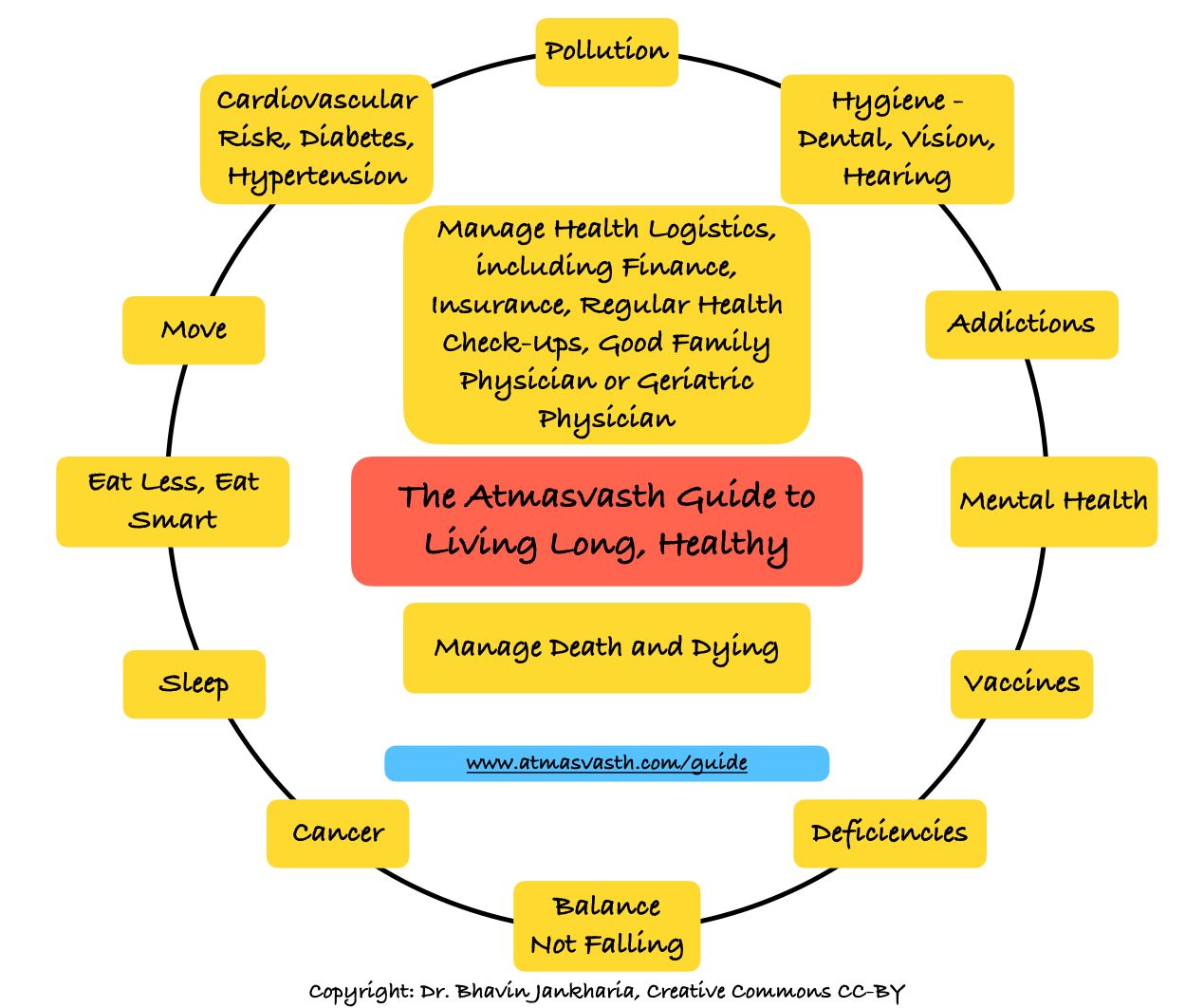Saying No to Preventive Gallbladder Surgery for Silent Gallstones
You can say no if you are being pressurized to get gallbladder surgery done for a silent gallstone

The Book

The Detailed 15-Point Guide to Live Long, Healthy

Audio
Text
Recently, a relative of a relative reached out for advice for a silent, asymptomatic gallstone that was diagnosed during an ultrasound test for a kidney problem. This person had no symptoms related to the gallstone, but was anyway advised surgery to remove the gallbladder. Since I was asked, I consulted my surgical colleagues, who told me that nothing needs to be done and I passed this advice onto the concerned person. A week later, the relative of the relative anyway underwent a laparoscopic cholecystectomy (removal of the gallbladder using a scope), because of the advice of the family and the doctors.
Why am I writing this piece?
In most parts of the world, silent gallstones are left alone [1, 2] and not operated upon. The Choosing Wisely campaign includes this in its list of recommendations, saying “Avoid routine cholecystectomy for patients with asymptomatic cholelithiasis.” While there are no Indian guidelines, Drs. Behari and Kapoor in 2012 [3] said the same thing…prophylactic or preventive gallbladder removal is not indicated in people with silent gallstones without symptoms.
Yet, in India, a silent gallstone usually picked up incidentally during a health checkup or ultrasound done for other reasons, often becomes an indication to convert an otherwise healthy person into a patient and to take the gallbladder out.

What are the reasons given for doing preventive gall bladder removal?
They typically include the possibility of future complications like cholecystitis (inflammation of the gallbladder), pancreatitis (inflammation of the pancreas) or obstructive jaundice due to the gallstone slipping into the bile duct.
How common is this?
Since there is no data from India, we have to rely on Western data. About 18% of people with silent gallstones may develop symptoms or complications over a 15-years period at the rate of 1-2% per year. This means that out of 100 people with silent gallstones, 1-2 per year may develop symptoms, reaching around 18% over 15 years [3].
It is important to realize that these symptoms and complications are not like acute heart attacks or strokes, where there is often no warning and sometimes not even enough time to get to a doctor or hospital for immediate treatment. Symptoms with gallstones typically occur over days and there is usually enough time to get treated appropriately.
Another reason cited for operating on silent gallstones in India is the fear of gallbladder cancer, the incidence and prevalence of which are high in Northern India and along the Gangetic plain. However, we again have no data to suggest that gallstones cause cancer or that they are an initial sign of cancer, nor do we know that removing the gallbladder makes any difference at all.
What are the reasons against doing preventive gallbladder removal?
Any preventive strategy, whether drugs (statins, etc) or surgery should be without any complication or the complications must be worth the final result (as with statins). This is why even multivitamin supplements are a challenge, because we know they can cause harm, and yet we have no proof of their benefits.
With any surgery, the dictum has to be, to only let someone operate on you, if it is absolutely necessary. You should be convinced beyond doubt that the surgery will be of help and/or is needed. The burden of proof to remove a silent gallstone should be on those who want to remove it and not on you to prove it is not needed. Only if you have symptoms that are due to the gallstone, does getting the gallbladder out become a viable and valid option.
But let’s say you are being pressurized into getting surgery for a silent gallstone by doctors, well-wishers, family members or WhatsApp groups. There is a real chance of complications, mainly bile duct injury even in the best of hands. About 1-4 out of 1000 people [4] with laparoscopic gallbladder removal will have bile duct injury and suffer its consequences including prolonged stay in the hospital, possible jaundice and a host of other issues…in short…a normal person becomes a “biliary cripple” .
You also have to take into account the hidden risks of any major surgery with anesthesia in older adults. Again, since we have no Indian data, let’s look at a study from the US by Thomas Gill and colleagues [5], who assessed a cohort of patients 65 years and older who underwent any major surgery. At the end of 1 year, the mortality rate was 13.4% (7.4% for elective and 22.3% for non-elective surgeries), much higher than the mortality rate in the general population. This means that any surgery with anesthesia has snowballing effects for a variety of reasons…which means, you should agree to a surgery only if it is absolutely indicated and needed and the bar should be set much higher for preventive surgery.
If you are sick and have symptoms and surgery is needed to cure the problem, then that surgery has to be done, irrespective of the potential complications, but if you have no symptoms and you do not have a silent problem like a cancer that could potentially spread, you do not need to get operated, especially, if it is just a silent gallstone.
What does this mean for you and I? In our atmasvasth to live long healthy, we adopt many practices to prevent disease from occurring including taking statins to reduce our risk of heart attack, or vaccines to reduce our risk of infections. Preventive surgery to remove body parts that may cause problems in the future should be approached with extreme caution…you should agree to this only if the benefits of doing the surgery far outweigh the risks of not doing the surgery. When it comes to silent gallstones, the evidence is overwhelmingly in favor of avoiding preventive gallbladder removal. And remember…you have the power and the right to say no.
Footnotes:
1.Fujita N et al. Evidence-based clinical practice guidelines for cholelithiasis 2021. J Gastroenterol. 2023 Sep;58(9):801-833. doi: 10.1007/s00535-023-02014-6.
2. Ibrahim M et al. Gallstones: Watch and wait, or intervene? Cleve Clin J Med. 2018 Apr;85(4):323-331. doi: 10.3949/ccjm.85a.17035.
3. Behari A, Kapoor VK. Asymptomatic Gallstones (AsGS) - To Treat or Not to? Indian J Surg. 2012 Feb;74(1):4-12. doi: 10.1007/s12262-011-0376-5.
4. Moghul F, Kashyap S. Bile Duct Injury. [Updated 2023 Jul 31]. In: StatPearls [Internet]. Treasure Island (FL): StatPearls Publishing; 2023 Jan-. Available from: https://www.ncbi.nlm.nih.gov/books/NBK546703/#
5. Gill TM et al. Population-Based Estimates of 1-Year Mortality After Major Surgery Among Community-Living Older US Adults. JAMA Surg. 2022 Dec 1;157(12):e225155. doi: 10.1001/jamasurg.2022.5155.
Atmasvasth Newsletter
Join the newsletter to receive the latest updates in your inbox.
